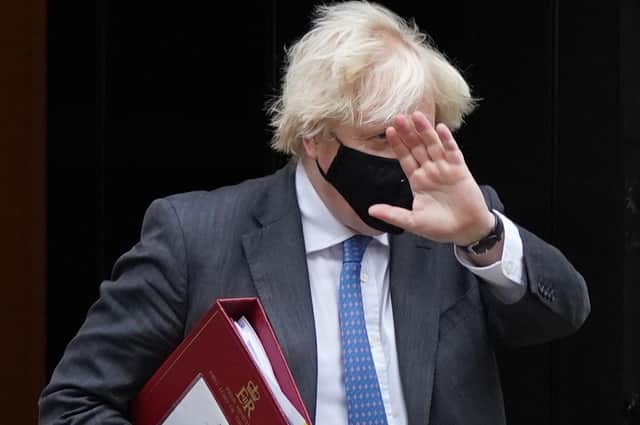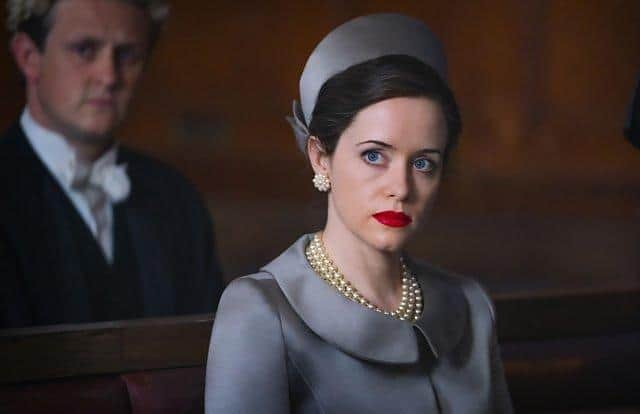They knew how to stage a scandal in the swinging Sixties – David Behrens


The people trust their celebrities more than their politicians, and within a year Johnson was gone.
It’s a cautionary tale for his namesake at Downing Street today – especially after Ant and Dec proved themselves as adept as Cronkite in gauging the public mood. When they turned I’m a Celebrity… Get Me Out of Here! into an anti-party political broadcast against the PM, he must have realised that the game was up. Indeed, the climate of ridicule is so prevalent now that when I saw Would I Lie To You? listed in the Christmas Radio Times, I assumed it was one of his broadcasts to the nation.
Advertisement
Hide AdAdvertisement
Hide AdBut at least the anticipation of some festive viewing – and the expectation of welcoming a few previously absent friends back to the Christmas table – gives us cause to hope that this year’s celebrations will be closer to normal than last time around.


For me, one TV highlight stands and shoulders above the interminable omnibus editions of EastEnders and Coronation Street, and it’s another hark back to the swinging Sixties.
Margaret, Duchess of Argyll is a name almost completely lost to the current generation of Royal watchers, but in 1963 she was at the centre of the most sensational divorce scandal of her time. It was an age when the traditional values of Establishment Britain were colliding head-on with the newly-emerging permissive society, and Margaret, by all accounts, was more permissive than most.
Advertisement
Hide AdAdvertisement
Hide AdShe was already a divorcee when she became the third wife of Ian Campbell, 11th Duke of Argyll. By the time they parted, she had reportedly entertained 88 other lovers and been photographed with a Polaroid camera, dressed only in her signature pearl necklace. The revelation of all this in the divorce papers made that year’s Profumo affair look like a vicar’s tea party.
There was a political dimension, too, for the Polaroids also showed a “headless man”, invisible from the neck up and naked below. It was speculated to be Duncan Sandys, Minister of Defence and Winston Churchill’s son-in-law, who offered to resign from the Cabinet.
Today, indiscretions such as those are par for the course for a politician, but in the buttoned-up Britain of 1963 they were incendiary, and the BBC’s dramatisation of them promises to be as uproarious as its treatment of the Jeremy Thorpe debacle a couple of years ago. Even the casting has been done with a nudge and a wink, with Claire Foy as the wayward Duchess looking just as she did as the young Queen Elizabeth in The Crown.
Boris Johnson’s authority called into serious question over Tory MP revolt - The Yorkshire Post says
Advertisement
Hide AdAdvertisement
Hide AdShe certainly looks nothing like the Margaret I met, two decades later at the studios of Yorkshire Television in Leeds. Notoriously hard-up at the time, she had agreed to let film cameras inside her home for the panel show, Through The Keyhole, in order that Chris Tarrant and Kenneth Williams might guess who lived there.
The Duchess had not seen the show because the first episode had yet to be screened, so she couldn’t have known what to expect. I doubt very much that she envisaged being paired with her fellow guest, the Bingley showjumper Harvey Smith, who was famous mostly for showing two fingers to the judges at Hickstead.
She looked older than her 74 years, and had to be helped on set by the host, David Frost, who had persuaded her to appear in the first place. I was the show’s publicist and I chatted to her in the green room after the recording – a slightly withdrawn and distant figure, as I recall. The studio audience didn’t have a clue who she was; they were more interested in Harvey Smith.
Nearly 30 years after her death, the BBC drama on Boxing Day will make her a household name once more, and perhaps even a role model for independent women – a notion no-one would have entertained back in 1963.
Advertisement
Hide AdAdvertisement
Hide AdSuch is the perspective that the passage of time affords us. In a few years, the BBC will likely dramatise the Downing Street scandals of today – and by the time it does, we may very well have made Ant or Dec Prime Minister. And why not? If we’re going to have a clown in Number 10, we may as well get a professional one.
Support The Yorkshire Post and become a subscriber today. Your subscription will help us to continue to bring quality news to the people of Yorkshire. In return, you’ll see fewer ads on site, get free access to our app and receive exclusive members-only offers. Click here to subscribe.
Comment Guidelines
National World encourages reader discussion on our stories. User feedback, insights and back-and-forth exchanges add a rich layer of context to reporting. Please review our Community Guidelines before commenting.